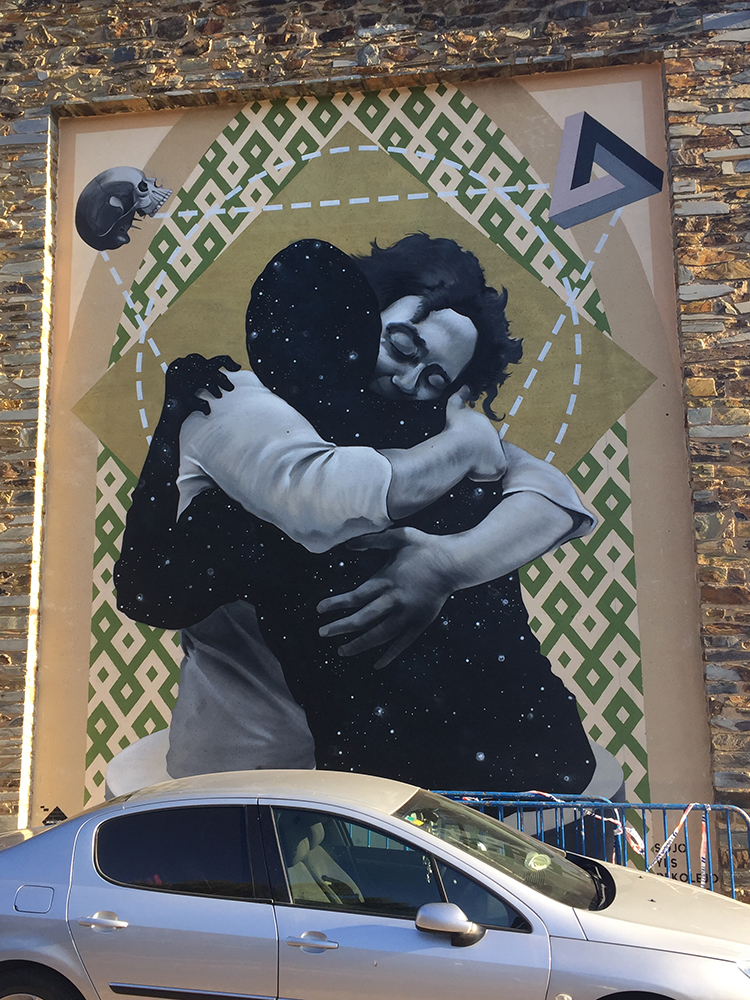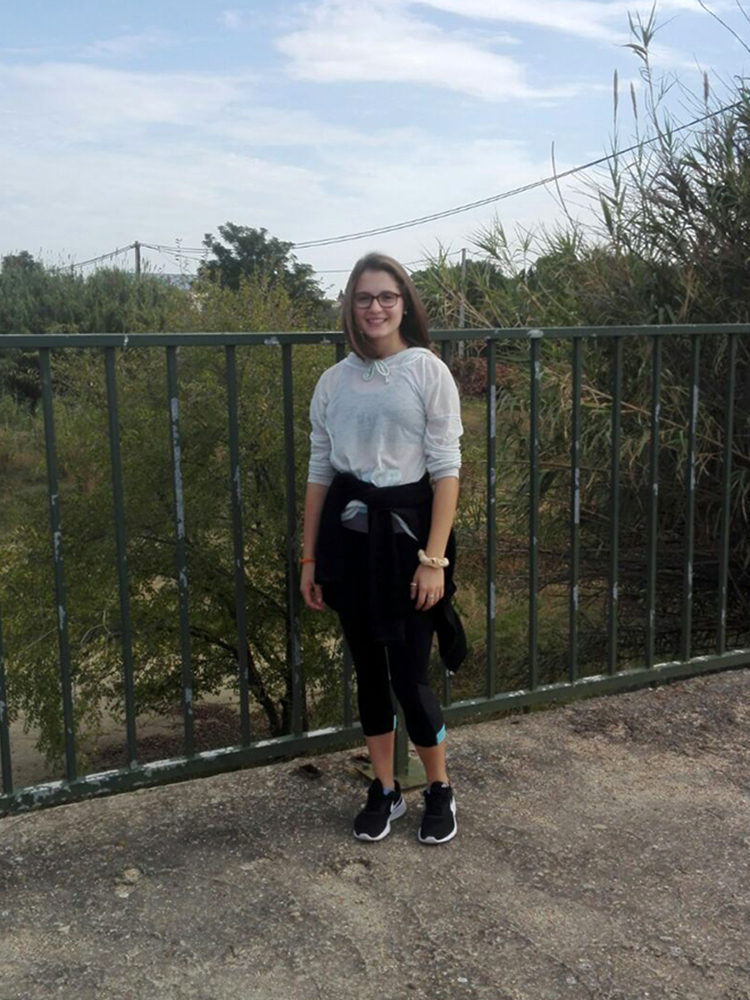Louise Plever, one of our High School in Spain students, has been working hard to expand her Spanish language skills. Below are six ways she’s been able to excel at learning Spanish, which could also be applied to learning any second language.
Read books in Spanish. I’ve been reading the book Wonder by R.J Palacio, which I’ve read before in English. Even though I don’t understand every word, it is a great way to learn new vocabulary and see words I’ve heard written down. I also have two books with Spanish on one page and the English translation on the other. Those books are super helpful because if there’s a word I don’t understand, the translation is right there.
Go out. I try to go out with my friends as often as I can. I have a host sister my age, so we usually go out together. My host mom and I have been going on walks, and I’ll point out things we see and ask her how to say that in Spanish. Today we walked El Camino Verde, which is pretty desert-like but considered the countryside. Going out will only help you hear, see, and speak Spanish.

I take my pocket dictionary to school each day. For tests or when I have to write essays or when I don’t understand a word, I can use my dictionary. I also write down important grammar points in my dictionary. I’ve learned that here in Spain with ‘c’ you only make the ‘z’ sound (in English it would be the “th” sound) when ‘e’ or ‘i’ comes after the ‘c’.
For example,“ejercicio” makes the ‘z’ sound for each ‘c’ because an ‘i’ comes after it. The word “quimica” makes a hard ‘c’ sound because an ‘a’ follows the ‘c’.
Keep a dictionary around so you can look up words you hear but don’t know. I personally think it’s helpful to see the word written down, so having a dictionary is super helpful.
Watch TV and movies in Spanish. My host family watches a lot of TV which has been a great way to hear new vocabulary. We’ve watched American shows, like Modern Family, in Spanish which is hilarious because the voices are so different. We’ve also watched some classic Spanish shows. Movies and TV are really helpful because I can see what is happening even though I don’t understand what I’m hearing.
Ask for help and accept that your ability is limited. I came to Spain with a very basic level of Spanish. I couldn’t understand anything during my first few days, partially because I hadn’t settled down and wasn’t used to anything, and partially because my Spanish was at a classroom level. I constantly had to ask people to speak slower and clearer, I still do. It’s so important to ask when you don’t understand something. How will you learn if you don’t ask? I’ve had to accept that my abilities are very limited. It’s frustrating at times, but I know I’ll get better. It’s only been a month and a half and I can already see I’ve improved. I have a long way to go and I have time to get there. Learning a language is hard, but fun if you can laugh at yourself when you mess up and just go for it.
Make a vocabulary list. During class my teachers usually talk the whole time, very different from school in the United States. I try to pick out as many words as I can to write down and translate. English class is actually so helpful for me because the English is translated into Spanish, which is just what I need to learn new vocab. I have a list of words from English class, a list from my Spanish class, and a list that I’ve made myself. I’m a very visual person, so writing down words and being able to see them is really helpful.
Learning a new language is one of the hardest things I’ve done, and very frustrating because it just takes time and I can’t say everything I want to say. Living with my host family, being in Spain, and only being able to communicate in Spanish is all the motivation I need. It’s a long process, but it’ll be so worth it in the end. With patience and practice, fluency will come.
Louise Plever is 15 years old and lives in Asheville, North Carolina. Her goal during her study abroad program in Spain is “to become fluent in Spanish and make friends that will last a lifetime.” Follow Louise’s adventure in Spain on her blog post updates throughout the year.


Leave a Reply